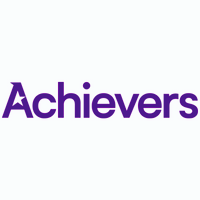What UK businesses need to know about compliant rewards
On the surface, rewarding employees may seem simple – gift cards, team events, or bonuses – but in the UK it’s often more complex.
Behind the feel-good moments lie a maze of tax rules, employment law duties, and reporting requirements. From HMRC-approved schemes to recognition programmes that work both legally and culturally, getting it right takes a bit of know-how.
Understanding what counts as a reward
Not all rewards are created equal, at least not according to the HMRC tax authorities. Cash rewards, like bonuses or performance incentives, are the most straightforward.
They’re treated as earnings and taxed through PAYE, plain and simple. Non-cash rewards, such as gift vouchers, merchandise, or team experiences, can feel more fun, but they still have a monetary value and may attract tax and National Insurance.
Then there’s the recognition that costs nothing at all: heartfelt shoutouts in a team meeting or a company-wide mention. These intangible rewards lift morale while keeping you firmly on the right side of HMRC.
Each type of reward carries different compliance implications, and even something as small as a box of chocolates for a job well done could technically fall under HMRC scrutiny.
By clearly distinguishing between cash, non-cash, and intangible recognition, you’re on your way to building a risk-free reward strategy.
Tax implications of employee rewards
When it comes to rewarding staff, HMRC is very clear on what counts as a “taxable benefit.” Pretty much anything with a cash value – bonuses, incentives, gift vouchers, even some team experiences – can fall under this umbrella. Cash or cash-equivalent rewards need to go through PAYE, with the usual deductions for tax and National Insurance, just like ordinary wages.
That said, there’s a bit of breathing room. The trivial benefits exemption lets you give small perks, as long as they cost £50 or less, aren’t cash or vouchers, and aren’t linked to performance or written into contracts. A birthday bottle of wine? Usually fine. A £50 Amazon voucher for hitting targets? Not so much.
If you get it wrong, HMRC can come knocking with backdated tax bills, penalties, or even audits. To keep things simple, many employers use a PAYE Settlement Agreement (PSA), which lets you settle tax on non-cash rewards all in one go.
Employment contracts and reward policies
Any rewards on offer need to be reflected in employment contracts and internal policies. Clarity really matters here: be upfront on whether rewards are discretionary or contractual.
Discretionary rewards let you celebrate achievements freely, without creating an expectation that the same reward is guaranteed in the future. Contractual rewards, on the other hand, set up expectations. This is where repeat annual bonuses or perks can unintentionally become “implied rights,” leaving you open to claims if they aren’t repeated.
The key to avoiding misunderstandings is clear communication. Spell out reward structures in staff handbooks or policies, so everyone knows what to expect.
Be consistent, as uneven rules can cause confusion and even lead to employment disputes. Managers also play a part, so it’s worth training them on setting boundaries when giving informal rewards.
By keeping policies clear, applying them consistently, and keeping managers in the loop, you can celebrate achievements without running into legal trouble.
Avoiding discrimination and ensuring fairness
When designing reward programmes, UK businesses need to keep the Equality Act 2010 in mind. This law makes it illegal to discriminate against employees based on characteristics like age, gender, race, disability, religion, or sexual orientation.
It doesn’t just cover obvious discrimination – even policies that seem neutral can unintentionally disadvantage certain groups.
That means even well-meaning rewards can cause issues if they’re applied inconsistently or favour some groups over others. A programme that looks fair on the surface can still unintentionally leave some employees at a disadvantage, which can hurt morale and trust.
The biggest risk comes with subjective rewards. Unconscious bias can sneak in, creating a sense of favouritism and leaving some people feeling overlooked. The key is to set clear, transparent criteria for who gets rewards and why – and then stick to them consistently across all teams and sites.
Data protection and employee consent
Rewards and recognition often involve sharing personal details like names, photos, or performance highlights – which brings UK GDPR into the mix. Anytime you’re handling personal information, you need a clear legal reason to do so, and in many cases, explicit consent from the employee.
Good practice is to offer opt-outs for public recognition and keep clear records of consent for any reward-related communications or features. By respecting privacy and securing consent, you protect both your employees and your organisation – while still finding ways to celebrate achievements in a safe and positive way.
Cross-border considerations for global teams
Tax, labour, and employment rules differ from country to country, so recognising employees outside the UK can quickly get complicated. Even within the UK, devolved administrations like Scotland may interpret or enforce rules differently, which adds another layer to think about.
When in doubt, team up with legal or HR experts who know the local rules.
Building a reward programme with compliance at its core
Compliance is the backbone of any effective reward programme. Start with a clear policy that spells out the types of rewards, who’s eligible, and how you’re checking tax, employment law, as well as equality considerations.
Also, make sure managers know what they can and can’t offer, and provide template wording to keep recognition consistent.
The right technology can simplify the process, helping you track rewards, monitor engagement, and stay on top of tax reporting. When compliance is built in from day one, you create a programme that makes rewards simple, fair, and genuinely rewarding for everyone.
Recognition done right is recognition done responsibly
Recognition can be a huge motivator, but only if it’s done thoughtfully. Understanding tax rules, employment law, and ethical considerations helps protect both your employees and your organisation from unexpected pitfalls.
A carefully planned reward strategy lifts morale and stands up to scrutiny, while also making sure that all praise, perks, and bonuses stay fully compliant.
Supplied by REBA Associate Member, Achievers
Achievers is an enterprise Recognition and Reward software with non-monetary and monetary recognition and a global reward marketplace.








